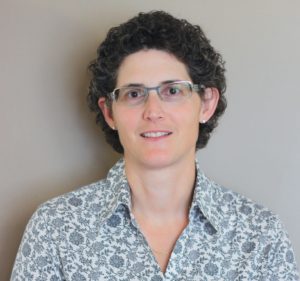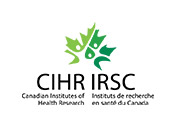Sabrina Wong
Sabrina Wong (Co-Investigator) is an Associate Professor in the School of Nursing at the University of British Columbia in Vancouver.
- Her research focuses on primary health care, specifically how structures (e.g., models of care) and processes (e.g., interprofessional teamwork, interpersonal communication) can enhance the delivery and organization of health services.
- She has specific interests in examining quality of patient care, inequities in health and disparities across groups who may be vulnerable due to factors such as poverty, speaking English as a second language, or geographic location using mixed-methods.
- Her current projects focus on inequities in health and disparities in access to health services.
Bruce Wallace
Bruce Wallace (Co-Investigator) is an Assistant Professor in the School of Social Work at University of Victoria.
- As a community-based researcher, Bruce works with the Victoria Cool Aid Society’s Community Health Centre as well as their housing and shelter programs.
- His research and community involvement has focused on poverty, health and equity and he brings to EQUIP over twenty years of experience with non-profit agencies, often collaborating with consumer-led agencies addressing issues related to poverty, homelessness, poor health, mental health and problematic substance use.
David Tu
David Tu (Co-Investigator) is a Canadian Family Physician and current Research Coordinator for the Vancouver Native Health Clinic.
- He is also a “Physician Leader” for Vancouver Coastal Health STOP HIV project.
- Tu is also a Clinical Assistant Professor and has been a Community Based Researcher with UBC Department of Family Practice, and is a Clinical Associate at St. Paul’s Hospital’s HIV ward.
- Tu’s research interests focus on issues related to Aboriginal People and global health. His recent research work in Vancouver has focuses on application of the Chronic Care Model to HIV care and application of Self-Management support strategies for people with HIV as well as those with Diabetes.
Bernadette Pauly
Bernadette (Bernie) Pauly (Co-Investigator) is an Associate Professor in the University of Victoria School of Nursing, a Scientist in the Centre for Addictions Research and researcher with the Core Public Health Functions Research Initiative and Greater Victoria Coalition to End Homelessness.
- Her program of research focuses on the promotion of health equity with a particular focus on health and health care inequities in the context of substance use and homelessness.
- Her current research projects include a) integration of an equity lens in public health and application to the promotion of mental health and prevention of the harms of substance use; b) an exploration of factors that foster equity in housing programs in relation to homelessness, gender, and substance use; c) relevance of cultural safety in fostering equity in relation to substance use and social disadvantages; d) evaluation of socio-economic factors that impact equity for those experiencing homelessness and housing vulnerability.
- Her program of research draws heavily on principles of community based research and she is an active participant in health and social issues that impact equity in the community.
Josée Lavoie
Josée Lavoie (Co-Investigator) is a Professor with the Dept. of Community Health Sciences at the University of Manitoba.
- She holds an appointment with the Department of Community Health Sciences at the University of Manitoba, and is affiliated with the Manitoba First Nations Centre for Aboriginal Health Research (MFN-CAHR).
- Lavoie’s research interests focus on the policies and financing mechanisms set in place in Canada, Australia and New Zealand to support the continued development of indigenous primary health services and improved access to primary health care services.
Carol P. Herbert
Carol P. Herbert (Co-Investigator) is a Professor in the Dept. of Family Medicine at The University of Western Ontario.
- She was formerly the Dean of the Schulich School of Medicine & Dentistry at Western from 1999-2010 and headed UBC Dept. of Family Practice from 1988-98.
- Her work as a full-service family physician, initially at REACH and then at UBC, informed her research, which has included projects on family violence and sexual assault, clinical health promotion and patient-physician decision-making in primary care, complementary and alternative medicine, and diabetes in Aboriginal communities.
- She has been a leader in introducing a participatory research approach into primary care research.
- Current research projects have focused on health impact of toxic contaminants in indigenous communities in Canada and in Africa ; a realist review of participatory research – what works, for whom, and in what circumstances; and the impact of gender and generational changes in an academic department of Surgery.
Nadine Wathen
Nadine Wathen (Co-Principal Investigator) is a Professor in the Faculty of Information and Media Studies at The University of Western Ontario and Research Scholar at the Centre for Research and Education on Violence Against Women and Children and a Member of The College of the Royal Society of Canada.
- Her primary research area is developing and evaluating interventions for women and children experiencing violence; and developing the science of knowledge translation and exchange (KTE) to ensure that new knowledge emerging from research is made available, in appropriate ways, to health decision-makers including policy-makers, health care providers, advocates, and members of the public.
- She has worked extensively with the women’s health research and policy community in Ontario and federally, providing input on specific projects and initiatives, particularly in the areas of family violence, evaluation, KTE and communications.
- She is co-principal investigator of the Preventing Violence Across the Lifespan (PreVAiL) Research Network (www.prevailresearch.ca), a CIHR Centre for Research Development in Gender, Mental Health and Violence Across the Lifespan and National Co-Lead of the Violence, Evidence, Guidance, Action – VEGA Project: A Public Health Response to Family Violence: http://www.projectVEGA.ca; she also co-leads the international Domestic Violence at Work (DV@Work) Network: http://www.dvatworknet.org
Colleen Varcoe
Colleen Varcoe (Co-Principal Investigator) is a Professor in the School of Nursing at the University of British Columbia in Vancouver.
- Her research focuses on women’s health with emphasis on violence and inequity and the culture of health care, and aims to promote ethical practice and policy in the context of violence and inequity.
- Her previous research includes studies of a) the interacting risks of violence and HIV infection for rural and Aboriginal women, b) rural maternity care for Aboriginal women, and c) ethics and health policy.
- She is co-leading studies of: a) the effects of violence for women who have left abusive partners, b) primary health care at urban Aboriginal health clinics, c) Aboriginal women’s experiences of leaving abusive partners.
- She is now leading a study of an intervention for Aboriginal women who have experienced violence.
Marilyn Ford-Gilboe
Marilyn Ford-Gilboe (Co-Principal Investigator) is a Professor and Echo Chair in Rural Women’s Health Research in the Arthur Labatt Family School of Nursing at the University of Western Ontario in London.
- With a background in public health, her research focuses on reducing health inequities among women who have experienced intimate partner violence (IPV), particularly those who face significant barriers to support (e.g. those living in rural communities, Indigenous women).
- This has included studies examining: a) how mothers and children who have separated from an abusive partner/ father promote their health; b) the long-term health and economic impacts of IPV for women, c) how shelters provide support for women who have experienced abuse; and, d) the impacts of innovative health care interventions on the safety, health and quality of life of women who have experienced IPV.
- She is currently co-leading research on the impacts of both online and nurse-delivered interventions for women who had experienced IPV, and working with policy partners to develop more accurate ways of measuring experiences of violence in population surveys.
Annette J. Browne
Annette J. Browne (Nominated Principal Investigator) is a Professor in the School of Nursing at the University of British Columbia in Vancouver.
- Annette’s research stems from her clinical work as an outpost nurse who lived and worked in First Nations and Inuit communities in Canada.
- Her research focuses on health and health care inequities, with a particular focus on implications for Indigenous peoples in Canada.
- Examples of studies she is currently leading are focused on: fostering access to health care for Aboriginal people in urban areas; addressing the health effects of structural inequities and structural violence; and studying the relevance of cultural safety to health services.







